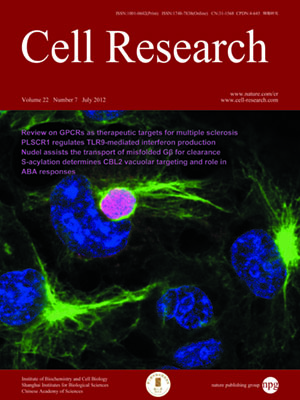
Volume 22, No 7, Jul 2012
ISSN: 1001-0602
EISSN: 1748-7838 2018
impact factor 17.848*
(Clarivate Analytics, 2019)
Volume 22 Issue 7, July 2012: 1102-1104
RESEARCH HIGHLIGHTS
The mechanisms of IDH mutations in tumorigenesis
Dan Ye1, Yue Xiong1,2,4 and Kun-Liang Guan1,3,5
1Molecular and Cell Biology Laboratory, Institutes of Biomedical Sciences, Fudan University, Shanghai 200032, China
2College of Life Science, Fudan University, Shanghai 200032, China
3College of Medicine, Fudan University, Shanghai 200032, China
4Lineberger Comprehensive Cancer Center, Department of Biochemistry and Biophysics, University of North Carolina at Chapel Hill, NC 27599, USA
5Department of Pharmacology and Moores Cancer Center, University of California San Diego, La Jolla, CA 92093, USA
Correspondence: Dan Ye, Yue Xiong, Kun-Liang Guan,(yedan@fudan.edu.cn; yxiong@email.unc.edu; kuguan@ucsd.edu)
Tumor-associated mutations in the isocitrate dehydrogenase 1 and 2 (IDH1 and IDH2) genes result in the loss of normal catalytic activity, the production of α-ketoglutarate (α-KG), and gain of a new activity, the production of an oncometabolite, R-2-hydroxylglutarate (R-2-HG). New evidence supports previous findings that R-2-HG acts as an antagonist of α-KG to competitively inhibit the activity of multiple α-KG-dependent dioxygenases, including both histones and DNA demethylases involved in epigenetic control of gene expression and cell differentiation, and also reveals an intriguing new facet of R-2-HG in tumorigenesis.
Cell Research (2012) 22:1102-1104. doi:10.1038/cr.2012.51; published online 27 March 2012
FULL TEXT | PDF
Browse 2129


